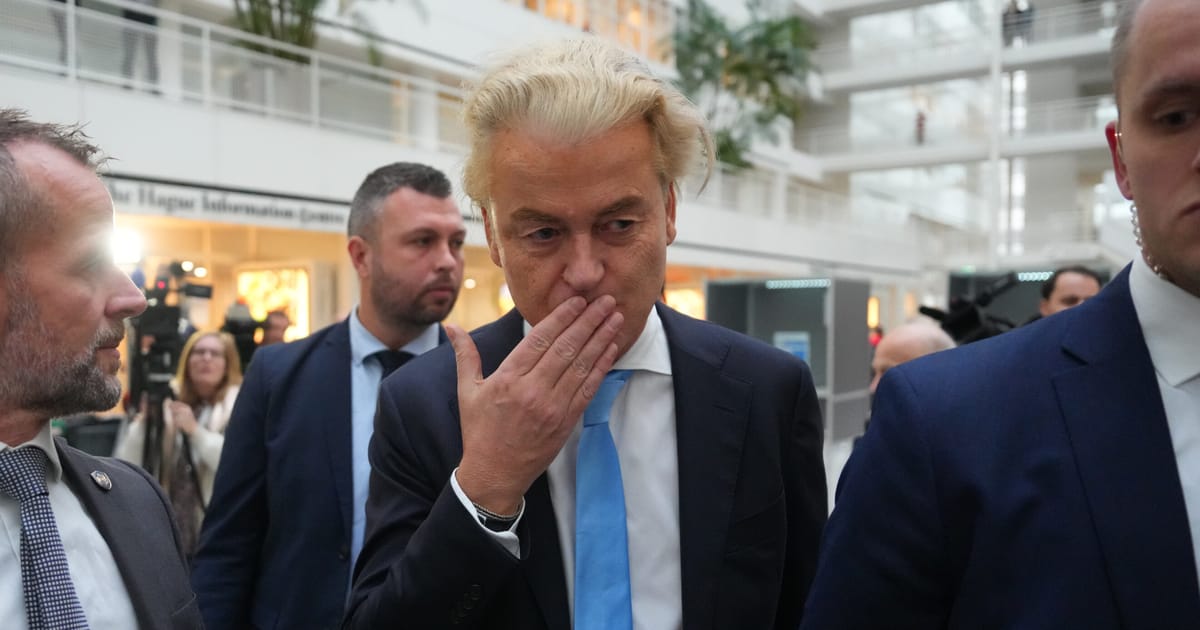The anti-Islam, euroskeptic radical Geert Wilders is projected to be the shock winner of the Dutch election.
In a dramatic result that will stun European politics, his Freedom Party (PVV) is set to win around 35 of the 150 seats in parliament — more than double the number it secured in the 2021 election, according to exit polls.
Frans Timmermans’ Labour-Green alliance is forecast to take second place, winning 25 seats — a big jump from its current 17. Dilan Yeşilgöz, outgoing premier Mark Rutte’s successor as head of the center-right VVD, suffered heavy losses and is on course to take 24 seats, 10 fewer than before, according to the updated exit poll by Ipsos for national broadcaster NOS.
A win for Wilders will put the Netherlands on track — potentially — for a dramatic shift in direction, after Rutte’s four consecutive centrist governments. The question now, though, is whether any other parties are willing to join Wilders to form a coalition. Despite emerging as the largest party, he will lack an overall majority in parliament.



In most countries “winning” the election implies having a majority.
In coalition countries like ours, it only means becoming the biggest party.
Hence why the headline might lead people to a wrong conclusion.
Practically speaking, it’s more important which potential coalition has a majority. And the parties on the right don’t have a clear majority, nor do the left parties.
So it will either be a center-right or center-left coalition.
Center-right will be attempted first, since we customarily let the largest party initiate, but it will be quite difficult since we have two chambers and different parties on the right are big in different chambers.
If he fails, center-left has a clear majority in both chambers with the same parties.
Edit: need to correct a mistake. Center-left also doesn’t have a clear majority in both chambers. Two of the big parties in this election have very few seats in the other chamber.
But not a problem, we often have coalitions that don’t have a majority in the Senate. Our House (this election) is more decisive and the Senate more facilitating.
A GL/PvdA-VVD-NSC-BBB combo has a majority in all chambers. It’s a difficult coalition, but the only one that seemingly commands a majority in both chambers.